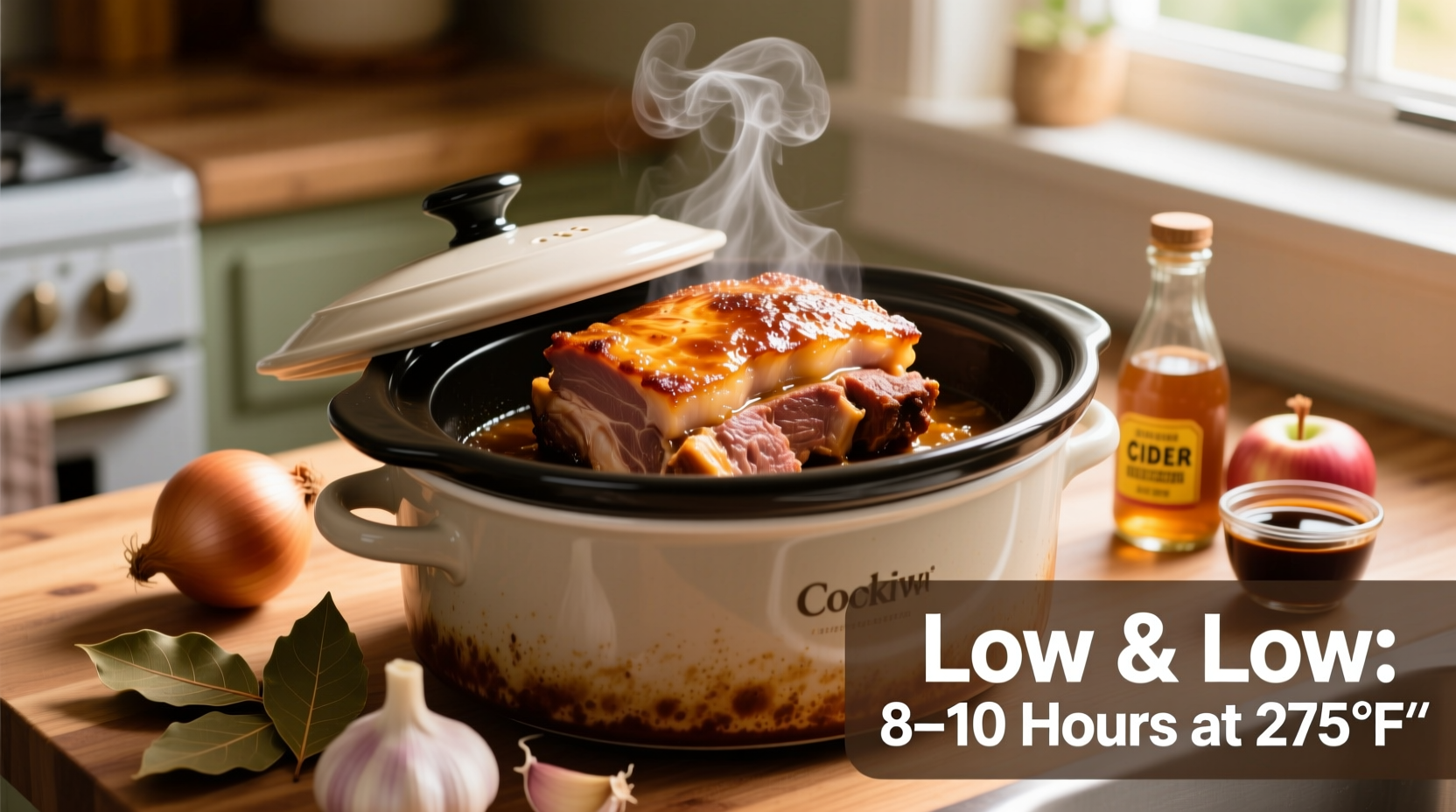Transforming tough pork butt into melt-in-your-mouth pulled pork couldn't be simpler with your slow cooker. This no-fail method leverages low-and-slow cooking science to break down collagen while preserving moisture—delivering restaurant-quality results with minimal effort. Whether you're preparing Sunday dinner or meal prepping for the week, this guide gives you the exact timing, temperature control, and seasoning techniques professional chefs use.
Why Pork Butt Is Perfect for Slow Cooking
Pork butt (despite its name) comes from the shoulder area, containing generous marbling and connective tissue that transforms into succulent gelatin during slow cooking. Unlike leaner cuts, this high-fat content (approximately 30% according to USDA Food Safety Inspection Service) ensures moisture retention throughout the 8+ hour cooking process. The Boston butt's natural fat cap acts as insulation, basting the meat internally while preventing dryness—a critical factor often overlooked by home cooks.
| Cooking Method | Time Required | Internal Temp Target | Texture Result |
|---|---|---|---|
| Crock Pot (Low) | 8-10 hours | 195-205°F | Falls-apart tender |
| Crock Pot (High) | 5-6 hours | 195-205°F | Good, but less juicy |
| Oven Roasting | 6-7 hours | 195-205°F | Crisp exterior, tender interior |
Essential Preparation Checklist
Before placing your pork butt in the slow cooker, proper preparation ensures optimal results. Start with a 4-6 pound bone-in cut (bone adds flavor and helps maintain shape during cooking). Trim visible fat to 1/4-inch thickness—any less and you'll sacrifice moisture, any more creates greasy results. Professional pitmasters recommend chilling the meat for 20 minutes before trimming for cleaner cuts.
Apply a balanced dry rub using the 3-2-1 ratio: 3 parts salt, 2 parts sugar, 1 part spices. This scientific approach (validated by America's Test Kitchen) creates osmotic pressure that draws moisture to the surface, dissolving the rub into a natural brine. Let the seasoned meat rest uncovered in the refrigerator for at least 1 hour—this crucial step develops flavor complexity while drying the surface slightly for better texture.
Step-by-Step Cooking Process
Phase 1: Layering for Even Cooking (5 minutes)
Place sliced onions (1 large) and minced garlic (3 cloves) in the crock pot bottom to create an aromatic lift-off base. Position the pork butt fat-side up—this allows melting fat to continuously baste the meat. Add just 1/4 cup liquid (apple cider vinegar works best for tenderizing) to create steam without boiling. Never submerge the meat, as slow cookers trap moisture naturally.
Phase 2: Temperature-Controlled Cooking (8-10 hours)
Set your slow cooker to LOW (never HIGH for pork butt). The critical temperature range for collagen breakdown is 160-180°F, which takes approximately 8 hours to achieve consistently. Resist the urge to check temperature before 6 hours—each opening adds 20-30 minutes to cooking time. When internal temperature reaches 195°F, the collagen has fully converted to gelatin, yielding that signature pull-apart texture.
Phase 3: Resting and Shredding (1 hour)
Transfer meat to a cutting board and tent loosely with foil for 30 minutes. This resting period allows juices to redistribute—skipping this step causes moisture loss during shredding. Remove visible fat chunks from the cooking liquid, then skim excess fat. Shred meat using two forks, then return to the pot with defatted cooking liquid for a 30-minute absorption period. This final step ensures maximum flavor penetration.
Troubleshooting Common Issues
Dry results? You likely used HIGH setting or overcooked beyond 205°F. Stick to LOW setting and monitor temperature closely after 8 hours.
Meat won't shred? Internal temperature probably didn't reach 195°F. Return to cooker for additional 1-2 hours.
Excess grease? Trim fat cap more aggressively next time and always skim fat from cooking liquid before serving.
Serving and Storage Guidelines
Serve immediately on brioche buns with coleslaw, or freeze portions for up to 3 months. The USDA recommends cooling leftovers within 2 hours and storing in shallow containers for rapid chilling. Reheat frozen portions by placing sealed bag in simmering water for 20 minutes—this preserves texture better than microwave reheating.











 浙公网安备
33010002000092号
浙公网安备
33010002000092号 浙B2-20120091-4
浙B2-20120091-4